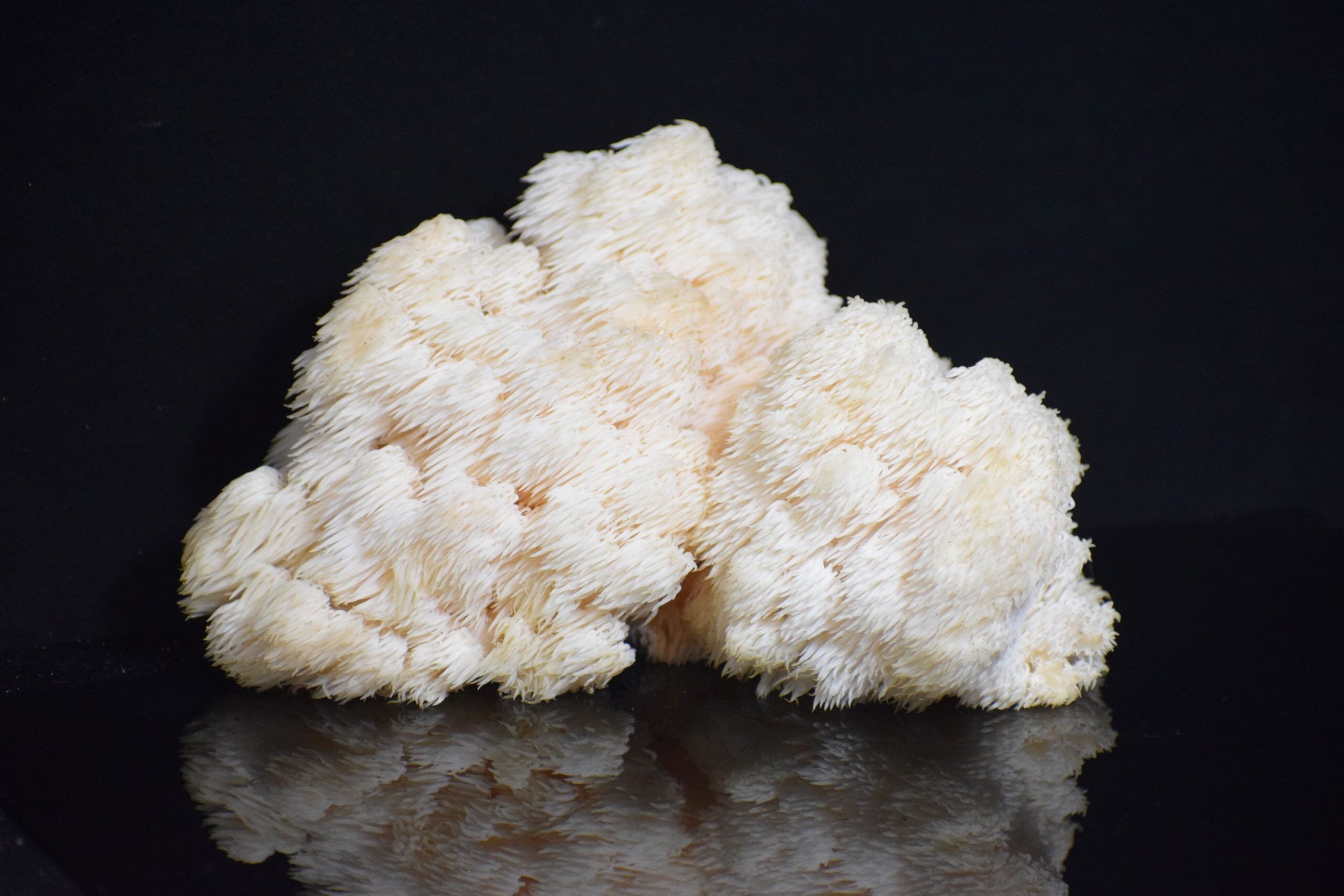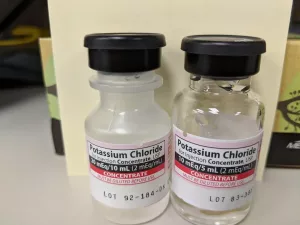Lion’s mane mushrooms are large, white, shaggy fungi that resemble a lion’s flowing mane as they develop. They contain bioactive compounds that may offer numerous health advantages, particularly for the brain, heart, and digestive system.
Also called Hericium erinaceus, hou tou gu, or yamabushitake, lion’s mane is used both as a food and a medicinal fungus in Asian nations such as China, India, Japan, and Korea.
Below are nine health effects linked to lion’s mane and its extracts, along with guidance on dosing, preparation, and possible adverse reactions.
1. May help protect against dementia
The brain’s capacity to generate new neurons and form fresh neural connections tends to decline with age, which likely contributes to worsening cognitive performance in many older adults.
Research indicates that lion’s mane contains two notable groups of compounds—hericenones and erinacines—that can encourage neuronal growth.
Animal research also suggests lion’s mane might offer protection against Alzheimer’s disease, a degenerative disorder that leads to progressive memory deterioration.
In rodent models, lion’s mane and its extracts have reduced memory impairment and prevented neuronal damage from amyloid-beta plaques that build up in Alzheimer’s.
A 2020 trial involving people with mild Alzheimer’s reported that supplementing with 1 gram of lion’s mane daily for 49 weeks led to significant improvements on cognitive tests versus placebo.
The mushroom’s ability to stimulate nerve growth and shield the brain from Alzheimer’s-related harm could underlie some of its cognitive benefits.
Still, most evidence comes from animal and laboratory studies, so more human trials are necessary.

3. May accelerate recovery from nervous system injuries
The nervous system includes the brain, spinal cord, and peripheral nerves that transmit signals controlling nearly all bodily activities.
Injuries to the brain or spinal cord can produce serious consequences, often causing paralysis or cognitive deficits and requiring long recovery times.
Nevertheless, studies indicate that lion’s mane extract might speed healing from such injuries by promoting growth and repair of nerve cells. It may also lessen the extent of brain damage following a stroke.
However, human studies have not yet confirmed whether lion’s mane produces the same benefits in people as those observed in animal experiments.
4. Protects against ulcers in the digestive tract
Ulcers can develop anywhere along the gastrointestinal tract, including the stomach, small intestine, and colon.
Two common causes of stomach ulcers are overgrowth of the bacterium H. pylori and damage to the stomach’s protective mucus layer, often from prolonged NSAID use.
Lion’s mane extract may help prevent stomach ulcers by inhibiting H. pylori growth and shielding the stomach lining from harm.
Several older laboratory studies found that lion’s mane extract inhibited H. pylori in vitro, but human studies testing effects inside the stomach are lacking.
A 2013 animal study showed lion’s mane extract outperformed conventional acid-suppressing medications in preventing alcohol-induced gastric ulcers — and without noticeable side effects.
Lion’s mane extracts also reduce inflammation and prevent tissue damage in other intestinal regions, showing potential for treating inflammatory bowel conditions like ulcerative colitis and Crohn’s disease.
In a 2016 trial of people with ulcerative colitis, a mushroom supplement containing 14% lion’s mane extract significantly eased symptoms and improved quality of life after 3 weeks.
However, the same supplement produced outcomes comparable to placebo in patients with Crohn’s disease.
Because the supplements in these trials included multiple mushroom species, isolating the specific effects of lion’s mane is difficult.
Overall, current evidence suggests lion’s mane extract may help prevent ulcers, but more human research is required.
5. May lower risk of heart disease
Key heart disease risk factors include:
- obesity
- elevated triglycerides
- increased levels of oxidized cholesterol
- a greater tendency for blood clot formation
Studies indicate lion’s mane extract can favorably affect some of these risk factors and potentially reduce heart disease risk.
Rodent research shows lion’s mane extract improves fat metabolism and reduces triglyceride concentrations.
In one 2010 study, rats on a high-fat diet that received daily lion’s mane extract had 27% lower triglycerides and gained 42% less weight over 28 days.
Because obesity and high triglycerides raise heart disease risk, these changes may contribute to cardiovascular benefits.
Test-tube studies suggest lion’s mane extract can also prevent cholesterol oxidation in the blood.
Oxidized cholesterol tends to adhere to artery walls, promoting hardening and increasing heart attack and stroke risk; preventing oxidation is therefore advantageous.
Additionally, lion’s mane contains hericenone B, a compound that may slow blood clotting and reduce the chance of heart attack or stroke.
While these findings indicate multiple ways lion’s mane might support cardiovascular health, human studies are needed to confirm the effects.
6. May aid diabetes management
Diabetes develops when the body cannot properly regulate blood glucose, leading to chronically elevated levels.
Persistently high blood sugar eventually causes complications such as kidney damage, neuropathy in the extremities, and vision impairment.
Lion’s mane may help manage diabetes by improving blood sugar control and reducing some associated complications.
Several animal studies have shown lion’s mane significantly lowers blood glucose in both normal and diabetic mice, even at doses as low as 2.7 mg per pound (6 mg per kg) of body weight per day.
One mechanism appears to be inhibition of the enzyme alpha-glucosidase, which breaks down carbohydrates in the small intestine.
Blocking this enzyme reduces carbohydrate digestion and absorption, thereby lowering postprandial blood sugar spikes.
Beyond glucose lowering, lion’s mane extract may reduce diabetic peripheral neuropathy. In mice with diabetic nerve injury, 6 weeks of daily lion’s mane extract reduced pain, lowered glucose, and increased antioxidant markers.
Lion’s mane shows promise as an adjunct for diabetes care, but more human research is required to define its role.
»MORE:Living with diabetes? Explore our top resources.7. May help combat cancer
Cancer arises when DNA damage causes uncontrolled cell growth and division.
Some studies indicate lion’s mane contains compounds with anticancer potential.
When lion’s mane extract is applied to human cancer cells in vitro, it can accelerate cancer cell death across several cancer types, including liver, colon, stomach, and blood cancers (, , , .) However, at least one older study did not reproduce these findings.
Besides killing cancer cells, lion’s mane extract has been reported to slow cancer spread.
A 2013 mouse study of colon cancer found lion’s mane supplementation decreased lung metastases by 69%.
A 2014 study reported lion’s mane extract outperformed standard cancer drugs in slowing tumor growth in mice and had fewer side effects.
Nevertheless, the anticancer effects of lion’s mane have not been tested in human trials, so further research is necessary.
8. Reduces inflammation and oxidative stress
Chronic inflammation and oxidative stress are implicated in many chronic illnesses, such as heart disease, cancer, and autoimmune disorders.
Research shows lion’s mane contains potent anti-inflammatory and antioxidant compounds that may lessen these harmful processes.
A 2012 comparison of 14 mushroom species found lion’s mane ranked fourth for antioxidant activity, recommending it as a valuable dietary antioxidant source.
Several animal studies report lion’s mane extract lowers markers of inflammation and oxidative damage in rodents and may be useful for inflammatory bowel disease, liver injury, and stroke.
Lion’s mane also appears to reduce inflammation released by fat tissue, which could mitigate some obesity-associated health risks.
While animal and lab results are encouraging, additional human studies are needed to confirm health benefits.
9. Supports the immune system
A robust immune system defends the body against bacteria, viruses, and other pathogens.
A weakened immune response increases susceptibility to infections.
Animal studies show lion’s mane can enhance immunity by boosting activity of the gut-associated immune system, which defends against pathogens entering through the mouth or nose.
These immune effects may be partly driven by favorable changes in gut microbiota that stimulate immune responses.
One 2012 study found daily lion’s mane supplementation nearly quadrupled survival in mice given a lethal dose of salmonella.
Although immune-enhancing effects are promising, this field of research is still emerging.
Dosage
There is no universally accepted dosage for lion’s mane. The safest and most effective amount varies by age, health status, and the intended use. Consult your healthcare provider to determine an appropriate dose.
For cognitive benefits, some suggest 3–5 grams per day. (56)
In a 2020 trial, adults 50+ with mild Alzheimer’s symptoms showed improved cognition after taking three 350-mg lion’s mane capsules daily for 49 weeks.
A 2019 study reported that taking three 400-mg capsules daily for 8 weeks improved depression, anxiety, and sleep problems in 77 overweight or obese participants.
How to prepare lion’s mane
Lion’s mane can be eaten raw, cooked, dried, or brewed as a tea.
Many people describe its taste as seafood-like, often likened to crab or lobster.
It can be cooked and used in dishes such as risotto, pasta, or soup.
Powdered lion’s mane mixes easily into hot water, tea, coffee, smoothies, or other drinks, and can be added to soups, stews, or gravies.

Forms
Some researchers believe fresh lion’s mane mushrooms provide the most benefit, though cultivation practices may influence medicinal properties. (59)
Lion’s mane products sold over the counter include:
- tablets
- capsules
- powder
- tinctures
However, experts caution there are currently no standards ensuring these products’ safety or efficacy.
Safety and side effects
Human studies on lion’s mane side effects are limited, but it appears to be generally safe.
No adverse effects were reported in rats even at dosages up to 2.3 grams per pound (5 grams per kg) per day for 1 month, or lower doses for 3 months.
Anyone allergic to mushrooms should avoid lion’s mane, as it is a fungal species.
There are case reports of breathing difficulties and skin rashes after exposure to lion’s mane, likely due to allergic reactions.
Frequently asked questions
Are lion’s mane mushrooms good for you?
They can be. Lion’s mane appears safe for use for many people, but consult a healthcare professional before starting supplementation and follow recommended directions.
What are the benefits of taking lion’s mane?
Potential benefits include:
- possible improvement of mild cognitive impairment
- support for symptoms of depression and anxiety
- faster recovery from nerve injuries
- protection against stomach ulcers
- support for cardiovascular health
- improved blood sugar control
- potential anticancer activity
- reduced inflammation
- enhanced immune function
Most evidence comes from animal studies; additional human trials are needed to confirm these effects.
What does lion’s mane do for the brain?
Lion’s mane contains compounds that may promote nerve growth. Some studies suggest it can improve cognition and memory and may help protect against Alzheimer’s. More research is needed to confirm these findings.
What are the negative effects of lion’s mane?
Lion’s mane is generally considered safe unless you have a mushroom allergy. No major adverse effects were reported in research, but if you experience any concerning symptoms after use, seek medical attention.
Is lion’s mane good for ADHD?
Some individuals use lion’s mane for ADHD because of its potential neuroprotective and cognitive-enhancing properties, but there is no solid scientific evidence supporting this use.
Is lion’s mane illegal?
Lion’s mane is legal to purchase and use in the United States. However, in some countries and U.S. states the fungus is protected and foraging may be prohibited. If you plan to forage, check local rules and obtain lion’s mane from reputable, sustainable sources (65).
The bottom line
Lion’s mane mushrooms and their extracts may offer a variety of health benefits.
Animal studies suggest potential protection against dementia, reductions in mild anxiety and depression symptoms, and assistance in nerve repair.
They also show anti-inflammatory, antioxidant, and immune-supporting effects, and may lower risks for heart disease, cancer, ulcers, and diabetes in animal models.
While findings are promising, more human research is required to determine practical medical uses for lion’s mane.
























Leave a Reply
You must be logged in to post a comment.